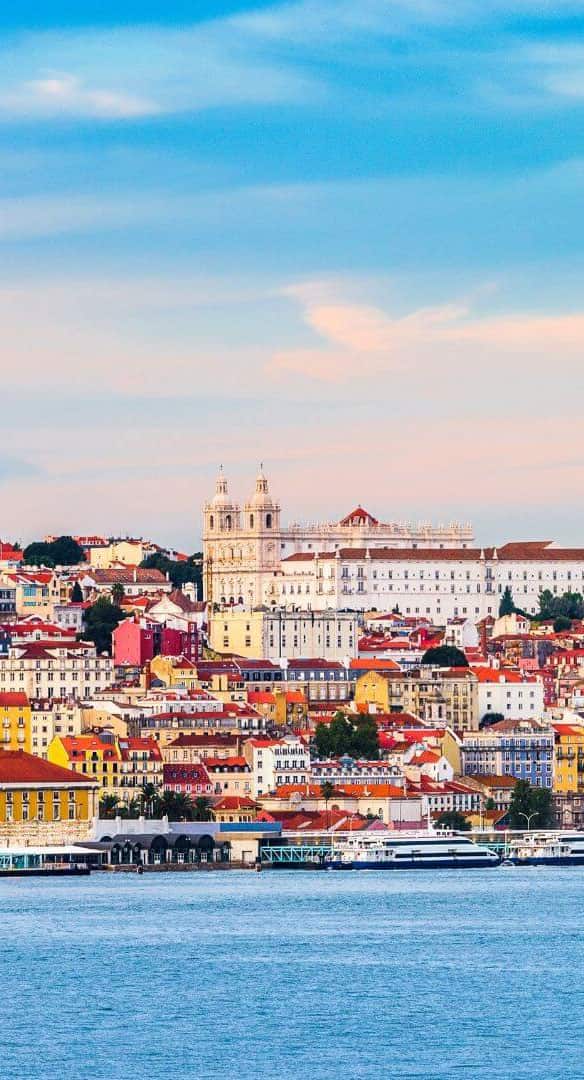Announcing the 2022 theme: The race to net zero: balancing exploitation and exploration
March 1, 2022
The world is waking up to a stark reality: the race to reach net zero by 2050 is in danger of being lost unless we rapidly activate and scale today’s technologies, while simultaneously unleashing a new age of discovery to find the unseen solutions of tomorrow. In short, we must focus all our efforts on a twin strategy of exploration and exploitation.
Exploitation: scaling up today’s key technologies, fast
Beating climate change will demand rapid innovation from every corner of society. The effort required will be huge, and none of it will be easy.
Academia must accelerate research to answer the great questions in life, material, and environmental sciences; legislators and regulators must create the laws and treaties that boost demand for cleaner technologies; while entrepreneurs and investors must rapidly commercialise and scale solutions to build more sustainable energy, manufacturing, transportation, and agriculture.
But because it will take decades to replace today’s fossil fuel-dependent industries with the cleaner operations of the future, the immediate imperative is to accelerate the deployment of key existing technologies that can buy humanity more time to meet the goals of the 2016 Paris Accords, where the nations of the world committed to reach net zero by 2050 and keep global warming below 2°C.
Focusing on the biggest impact
Existing technologies will have a massive impact on net zero if we rapidly scale and commercialise those technologies that can drive the most change, such as green hydrogen, green steel, energy storage and renewables like wave energy.
Sweden’s H2 Green Steel, for example, is undertaking the global steel industry’s greatest ever technological shift by eliminating almost all CO₂ emissions from the hard-to-abate steel production process, while CorPower Ocean’s flagship HiWave-5 project is leading the drive to commercialise wave energy and make it competitive with wind and solar by 2030.
Exploration: unleashing a new age of discovery
Accelerating today’s technologies will buy us time but, according to the IEA, half the technologies we need to achieve net zero haven’t been invented yet. That means the critical second element of our mission has to be exploration. We must empower and unleash today’s explorers to discover and develop innovations that will ultimately save the planet, whether that’s fusion energy, tidal power, hyperloop or ideas we haven’t thought of yet.
Magallanes Renovables, for example, is commercialising tidal energy that could one day generate up to 16% of the world’s energy needs. The Joint European Torus (JET), the focal point of the European fusion research programme, has built the world’s first commercial-scale fusion plant that could be the blueprint for future fusion power generation. Meanwhile, the hyperloop ultra-high-speed transportation concept introduced by Elon Musk promises a step change in clean public transport.
If we can beat Covid, we can beat climate change
The speed at which COVID-19 vaccines were developed shows how quickly the world can tackle an existential threat, when it works together. New vaccines usually take ten years to deliver, but the world’s scientists, doctors, governments, manufacturers and regulatory agencies came together to develop, test and deliver safe vaccines, on a huge scale, in less than a year. This unprecedented achievement was only possible because of new collaborative approaches and innovations that allowed every player to work smarter and faster, at scale, without cutting safety corners.
If we took the same approach to tackling climate change and came together to eliminate barriers to innovation, so we could work at greater speed and scale, just imagine what we could achieve.
Innovation will be a vital part of the European post-pandemic recovery. With its European Green Deal, Fit for 55 and European Industrial Strategy, the EU is charting a pathway to a green, digital economy that will also be a lifeline out of the COVID-19 pandemic.
The European Green Deal aims to transform the EU into an economy that is both resource-efficient and competitive, ensuring that Europe has no net emissions of greenhouse gases by 2050 while decoupling economic growth from resource use. Fit for 55 is accelerating this change by introducing policies to reduce net emissions by at least 55% by 2030. At the same time, the European industrial strategy lays out a pathway for Europe to lead the twin transition to a green and digital economy, enabling new industries and practices in sustainable energy, manufacturing, agriculture and more.
With these initiatives at work, innovation will not only be an enabler of climate goals, it will be a driver of growth, creating jobs, economic prosperity and energy security in the process.
